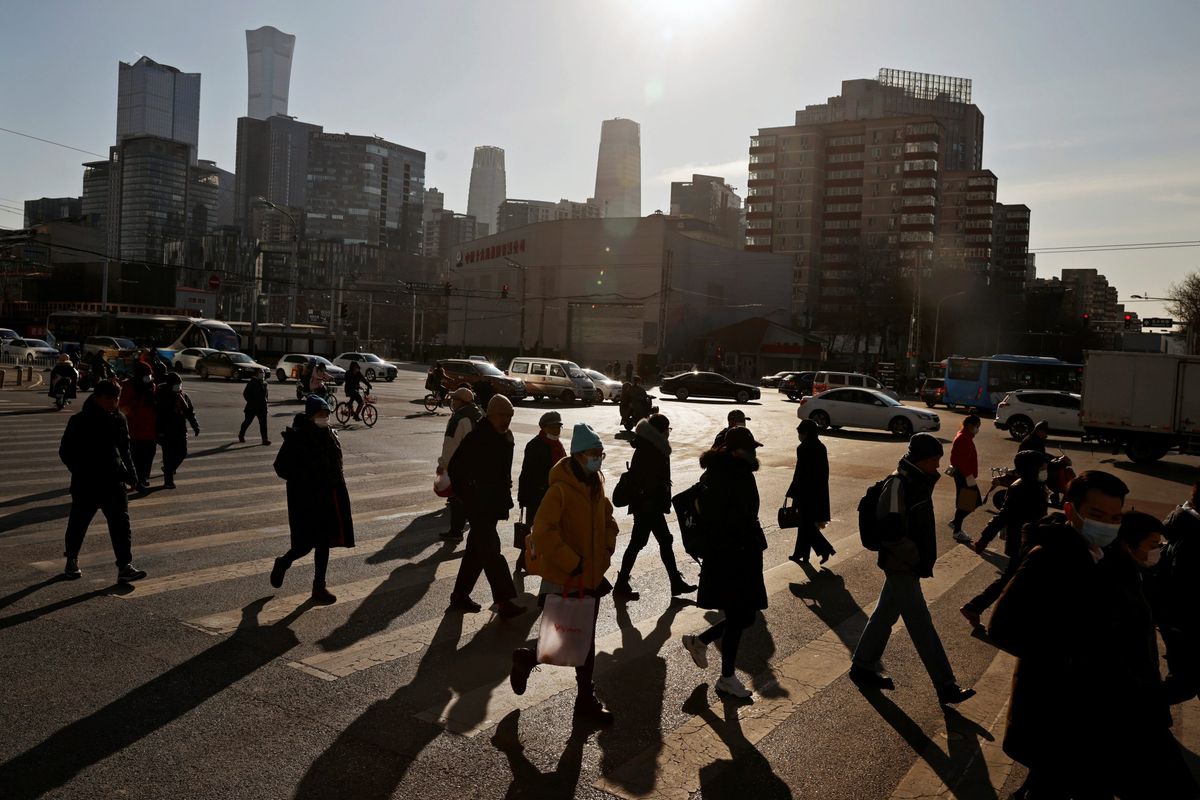With India and China adding around 750 million people between them to the middle class by 2030, how does this affect the global economy?

A few minutes every morning is all you need.
Stay up to date on the world's Headlines and Human Stories. It's fun, it's factual, it's fluff-free.
According to a study by the World Data Lab, the middle class between India and China alone is expected to grow by around 750 million by 2030.
What’s going on with Asia’s middle class?
- Cutting straight to the point, it’s just getting a whole lot bigger.
- According to a study by the World Data Lab, the middle class between India and China alone is expected to grow by around 750 million by 2030.
- Indonesia is expected to pass Japan and Russia to have the fourth-largest middle class during the same time.
- And Bangladesh is expected to see serious growth as well – going from the 28th largest middle class to the 11th.
- Asians technically already make up more than half of the world’s middle class. But right now, they only make up around 41% of the spending from the middle class.
- But by 2032, the study says, Asia will officially make up 50% of the world’s middle-class spending.
But, why isn’t Asia’s middle class spending that much right now?
- Well, first it’s worth understanding the different groups within the middle class.
- In that World Data Lab report, the middle class was defined as people spending between US$11 and US$110 a day, which kind of broad.
- Instead, it’s worth looking at the way the Pew Research Center breaks down the middle class, which is into an upper-middle-class (people making between US$20 and US$50 per day) and a lower-middle-class (people making between US$10 and US$20 per day).
- Up to now, China, and Asia more broadly, have mostly been growing their lower-middle-class, meaning that consumers don’t have nearly as much expendable income.
- But now, researchers think that the upper-middle class is going to grow, which means millions, if not billions, of consumers, will be added to the mix who are more willing to spend money on things they just want, instead of the basics, such as food, clothes and housing.
What does this mean for the Asian economy?
- Overall, it’s very good news for most businesses and industries based in Asia.
- For example, one industry that’s seen a boost recently has been the e-commerce industry in the Philippines.
- Because of the growing middle class, along with COVID-19, people largely turned to the internet to order things to be shipped to their door.
- This has, in turn, meant that those companies doing the selling and the shipping, not to mention the actual product creation, have needed e-commerce companies to handle their growth.
- Another example is in AIA, which is an Asia-Pacific-based insurance company that seems optimistic that their target consumer base in China could grow by 500 million in the next 10 years.
- Simply put, companies based in Asia are largely going to be able to cash in on the growing middle class, whether that is directly from those consumers themselves, or as supporting industries to the growth.
What about the rest of the global economy?
- The way this affects the rest of the world is a bit more up for debate, but the discussion mostly centers around China, and not as much the other countries in Asia.
- For China, this growing middle class is sort of being seen as a way for it to rebound from the pandemic recession faster than other countries like the United States.
- According to Amitrajeet Batabyal, a professor of economics at the Rochester Institute of Technology, if China does manage to return to the same levels of growth that it saw before the pandemic, it will trigger a global contest between not just economies, but types of governments.
- According to Batabyal, China will have to do two things to win such a contest. First, it would need to create systems to maintain the growth it saw before the pandemic that is reliable and can weather further storms.
- “The leadership needs to make massive nationwide investments in its educational systems, ranging from improving rural and vocational schools to improving universities and broadening access to urban educational opportunities. These educational investments, which economists term “human capital improvements,” typically take a long time to fully develop," wrote Batabyal.
- And second, it would need to prove to the world that China sustaining such a pace of growth is of benefit to the rest of the world, such as through mutually beneficial projects like the Belt and Road initiative.
What’s next?
- The main thing that most economists think China will have to avoid to get to a place of strength is called the “middle-income trap."
- Basically, this “trap" is what countries that go from being highly impoverished to being highly middle-class tend to deal with, and that’s that it’s very hard to move from middle-class to upper-class.
- There are a bunch of complicated reasons why this is a huge challenge, but the short version is that the tools and environment you need to get from a lower-class country to a middle-class one look drastically different from the ones you need to then move to the upper class.
- So, if China can beat this trap, then it will probably see a lot of sustained growth going forward, and countries in the West will need to really prove their worth to keep their hold on the global economy.
You drive the stories at TMS. DM us which headline you want us to explain, or email us at tips@themilsource.com







Comments ()